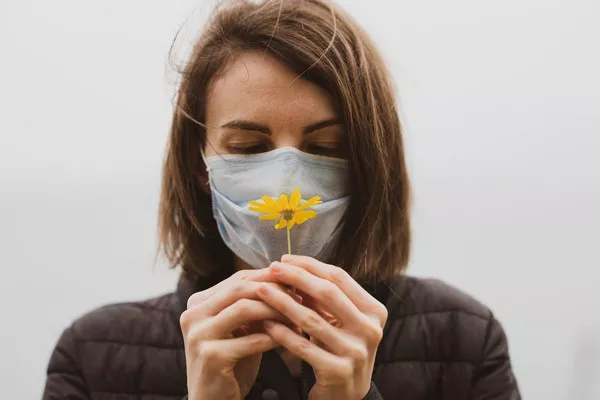As the seasons change, many individuals find themselves contending with the unwelcome companion of cold allergies. Characterized by symptoms such as sneezing, runny nose, and itchy eyes, cold allergies, or cold urticaria, can significantly impact one’s quality of life. In this article, we delve into the nuances of cold allergies, exploring effective strategies for managing and alleviating symptoms.
Understanding Cold Allergy
Cold allergy, formally known as cold urticaria, is a condition where exposure to cold temperatures triggers an immune response, leading to symptoms such as hives, swelling, and itching. While it is a relatively rare condition, its impact can be substantial, affecting daily activities and exposing individuals to discomfort in colder weather.
Common Symptoms of Cold Allergy:
Hives (Urticaria): Raised, red welts or bumps on the skin are a hallmark symptom of cold allergy. These hives can vary in size and shape and often cause itching or a burning sensation.
Swelling (Angioedema): In more severe cases, cold exposure may lead to swelling beneath the skin’s surface, particularly around the eyes and lips.
Itchy Skin: Individuals with cold allergy often experience intense itching on the skin, which can be a source of considerable discomfort.
Respiratory Symptoms: In some cases, exposure to cold air can trigger respiratory symptoms, such as wheezing, shortness of breath, or even anaphylaxis, though this is rare.
7 Strategies for Managing Cold Allergy Symptoms:
While cold allergy may not have a definitive cure, several strategies can help manage and alleviate symptoms. It’s important to note that the effectiveness of these approaches may vary among individuals, and consultation with a healthcare professional is advisable for personalized advice.
1. Dressing Appropriately: One of the simplest yet effective ways to manage cold allergy symptoms is to dress appropriately for the weather. Wearing layered clothing, including gloves, a hat, and a scarf, can create a barrier between the skin and the cold air, minimizing exposure and reducing the likelihood of hives.
2. Antihistamines: Over-the-counter or prescription antihistamines can be instrumental in managing itching and hives associated with cold allergy. These medications work by blocking the release of histamine, a chemical that triggers allergic reactions. Non-drowsy formulations are available for daytime use, while sedating antihistamines may be suitable for bedtime to aid with sleep.
3. Epinephrine Autoinjector: For individuals experiencing severe reactions, such as anaphylaxis, an epinephrine autoinjector may be prescribed. This device delivers a dose of epinephrine, a hormone that rapidly reverses the symptoms of a severe allergic reaction. Those with a history of anaphylaxis should carry an epinephrine autoinjector and be familiar with its use.
4. Avoiding Cold Triggers: Identifying and avoiding cold triggers is a key aspect of managing cold allergy. This may involve modifying activities during colder weather or using strategies such as pre-warming the car before driving or using heated blankets to minimize exposure.
5. Cold Desensitization Therapy: In some cases, healthcare providers may recommend cold desensitization therapy. This involves gradually exposing the skin to colder temperatures over time to reduce the severity of the allergic response. This therapy should only be conducted under the supervision of a qualified healthcare professional.
6. Immunosuppressive Medications: For individuals with severe and persistent cold allergy symptoms, immunosuppressive medications may be considered. These medications work by suppressing the immune response, but their use involves careful consideration of potential side effects and risks.
7. Allergen Immunotherapy: Allergen immunotherapy, commonly known as allergy shots, is a treatment option that involves regular injections of small amounts of the allergen (in this case, cold temperatures) to build tolerance over time. This approach is typically reserved for severe cases and is administered under the guidance of an allergist.
Lifestyle Considerations for Cold Allergy:
Beyond medical interventions, certain lifestyle adjustments can contribute to managing cold allergy symptoms effectively.
1. Regular Exercise: Engaging in regular exercise can help improve circulation and promote overall well-being. However, it’s essential to warm up adequately before outdoor activities in cold weather.
2. Hydration: Staying well-hydrated is crucial for maintaining skin health. Adequate hydration can also help reduce the severity of symptoms associated with cold allergy.
3. Skin Moisturization: Applying a hypoallergenic and fragrance-free moisturizer can help soothe and protect the skin, reducing dryness and itchiness.
4. Stress Management: Stress can exacerbate allergic reactions. Incorporating stress management techniques such as meditation, deep breathing exercises, or yoga into daily routines may help mitigate symptoms.
5. Consultation with Healthcare Professionals: Regular communication with healthcare professionals, including allergists and immunologists, is vital for ongoing management. They can provide guidance, monitor symptoms, and adjust treatment plans as needed.
Conclusion:
Cold allergy presents unique challenges, but with a multifaceted approach encompassing lifestyle adjustments, medical interventions, and proactive management, individuals can effectively navigate the symptoms. While there may not be a cure for cold allergy, the goal is to empower individuals to lead fulfilling lives, even in colder climates. As research advances and new therapies emerge, the prospect of improved management and quality of life for those with cold allergies remains promising.

